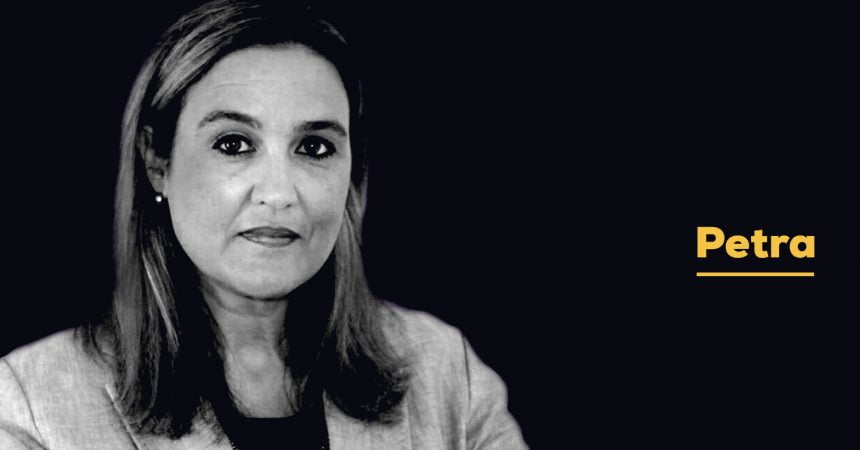Joseph Muscat walked up the Auberge de Castille staircase to his new office in 2013 as the man with a roadmap. He knew where he was going. Six and a half years later, he gives the opposite impression. He no longer appears to have any idea where he is heading at all.
He said he was leaving, yet is now thinking of staying. But there is no turning back on this. ‘Alea iacta est’ – the die is cast and the soldiers are preparing to cross the river.
Asked by the European Parliament last week about her government’s handling of the Panama Papers, commissioner-designate Helena Dalli said she would have handled it differently.
This was immediately spun into a badge of honour by Muscat. That is a legitimate answer, he said. With hindsight, he quipped, everyone would behave differently, in so many situations. Konrad Mizzi now thinks he should have done things differently too. How very convenient.
Yet many people did have enough foresight, from the start, to recognise how badly the Panama Papers revelations were being handled. How could Joseph Muscat not see that too? Because of his lack of foresight, therefore, he has thrown the country’s reputation to the dogs.
The signs were there all along. Responding to his first major scandal, the Café Premier site in Valletta, soon after taking office, he said: ‘we could have done better’. Did he rectify the situation? No. Having recognised a faux pas, Muscat shows no remorse and continues as before. Yet knowing that you are wrong, and admitting it, does not make you right.
People have speculated whether Helena Dalli’s reply was scripted by Castille Central Control, or whether she was jumping a sinking ship, abandoning Konrad Mizzi and friends at her first opportunity. But her reply was actually vintage Muscat: ‘it could have been done better’.
Muscat prides himself on being an innovator, transforming society. But without the ability to judge the effects of actions over time, that is a dangerous thing.
On the environment, for example, Muscat lacks the foresight to appreciate the long-term damage of his ‘construction-at-all-costs’ approach. Will he, one day, shrug it off saying that with hindsight, ‘he could have done things better’, while the country has to live with the urban devastation he inspired?
Muscat looks gaunt and stressed. He seems depleted of new ideas. In his Sunday morning speeches, he is still banging on about creating a new middle class as he did in 2013. Meanwhile, every social class you could think of are falling into the holes dug by bulldozers everywhere. Young people cannot afford to get out of these holes and onto the property ladder.
Muscat says he is not worried about over-development because ‘firewalls’ protect us. He relies on investors and the banks as two firewalls, as he is confident they will manage their money wisely. His own main ‘firewall’ against bad development, however, should be planning policies, to ensure good environmental protection and a fair playing field. Banks and investors look after their own interests, not the common good. But the government has relaxed planning policies, encouraging more development.
Another surprise in Helena Dalli’s speech was her describing the assassination of journalist Daphne Caruana Galizia as a ‘femicide’. This must have been rehearsed. What idiot would go in for a public hearing of that nature, expecting awkward questions on Daphne’s murder and the inquiry, and not be prepared? She would also have ensured that her answers were palatable to her boss at Castille. After years in a team of parliamentary robots, who never utter a single dissenting or original reply, she could surely not abandon that forma mentis so easily. Moreover, at that moment her acceptance as commissioner was not yet fully secured.
As former equality minister, Dalli knows what femicide usually means. She also knows that the government has been cautious in how to describe this murder, pointedly avoiding the word ‘assassination’ due to its political connotations.
Tempting as it is, I refuse the interpretation that Dalli said ‘femicide’ because she has been holed up with extremist gender activists for so long that she can no longer explain life in any other way except as a dark world of sexual abuse, discrimination and misunderstanding.
The deliberate misuse of ‘femicide’ was presumably intended to muddy the waters. The plan was foiled. A few days later, a source close to the police investigation reportedly said it is now “quite certain” that Daphne was murdered “because of what she wrote or was about to reveal”. No femicide, that. No surprises, there. She was killed because of the investigative side of her journalism.
But Dalli tried to peddle the line that it was femicide, that Daphne’s murder was decisively linked to gender and not to her exposing hidden activity in high places. As Lewis Carroll’s White Queen told Alice, with practice she could believe as many as six impossible things before breakfast.
Choice of language matters. Femicide and the murder of a journalist are not the same. Their motives and victims are different. To tackle the roots of these crimes, they must be recognised honestly for what they are.
Will Dalli apologise, and correct her deliberate obfuscation of reality? Or will she just say she ‘could have done better’? That would be vintage Muscat.












